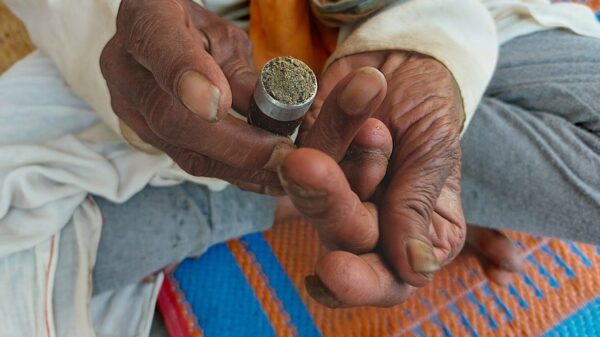Watchers of the international cannabis industry should be turning their eyes to a select number of countries without medical legislation that voted in favour of a successful UN vote implicitly acknowledging medical uses of the plant.
After a tight 27-25 vote Wednesday, member countries of the UN Commission on Narcotic Drugs voted in favour of measure 5.1, adopting a recommendation from the World Health Organization to deschedule cannabis and cannabis resin from section IV of the 1961 Single Convention on Narcotic Drugs. As was the case with weed, substances in both section I and IV are classified as having little to no medical benefit. Cannabis remains in section I.
Although it was the most significant among a series of related recommendations, it was the only one to pass.
Read more: Patient advocates urge UN to reschedule cannabis in upcoming vote
The move is being widely celebrated as a worldwide win for medical cannabis, symbolizing a global shift in perception. But some industry experts are turning their attention to a select set of countries — namely: the U.S., India, Sweden, El Salvador, Morocco and Nepal — because they voted in favour of the measure yet cannabis for medical purposes remains prohibited within their borders.
Their votes could signify movement toward establishing medical cannabis programs, especially now with a majority of the international community condoning medical use on some level.
Materia Ventures CEO and international cannabis expert Deepak Anand drew attention these outstanding countries on Twitter following news of the vote.
For those wondering about the impact of today's UN CND vote – pay close attention to those countries that voted Yes (Green) but haven't legalized medical #cannabis nationally as yet 👇🏻 pic.twitter.com/ipjD43x40O
— Deepak Anand (@_deepakanand) December 2, 2020
But even as one of the people keeping closest tabs on industry developments, he says India’s “yes” vote came as a surprise.
Despite ganja being firmly rooted in Indian culture, conservative views have prevailed over calls to liberalize laws on the plant. Recent crackdowns on cannabis use have extended to the hugely visible Bollywood scene, after a reported overdose death of a popular actor led to police investigations in the acting community.
However, India voted in favour of 5.1, which could mean that lawmakers are considering legislation for medical use.
As for the other countries of note, El Salvador is known for its relatively conservative views on weed among Latin American nations. Conversely, both Morocco and Nepal have a long history with cannabis and relatively little enforcement, especially in certain areas where it’s grown openly.
In the U.S., a majority of states have legalized medical cannabis while it remains prohibited by federal law. And in Sweden all use is technically illegal, but the cannabis-derived drug Sativex has been approved.
‘Schedule IV for cannabis is a relic of the most extreme international drug laws’
The move is even more important given that cannabis was put on schedule IV without ever being subjected to scientific assessment, For Alternative Approaches to Addiction, Think & do tank (FAAAT) wrote in a statement following the results.
“Schedule IV for cannabis is a relic of the most extreme international drug laws inherited from 1950s morals and is representative of long discredited value systems connected to racism, intolerance, disrespect for indigenous peoples and cultures that were the hallmark of the colonial age,” the statement reads.
FAAAT founder and independent researcher Kenzi Riboulet-Zemouli has reported extensively on the UN narcotics commission. The final tally closely reflects his previous reporting on the stances of member countries.
The think tank, which supports medical cannabis policy, laments governments’ failure to accept the more advanced WHO proposals which it called “a lost opportunity to make the treaty best fit to purpose.” However, FAAAT added that none of the negative votes will result in any worsening of controls over cannabis.
Some of the additional recommendations, which would have brought plant-based cannabis medicines onto a more level-playing field with their synthetic copies, had a good chance to be adopted, according to FAAAT. But in the last week the Pakistani ambassador, who chaired the UN commission tasked with the vote, applied brute force to the process by inserting a Russian proposal, leading to the vote being held “in deviation from the standard rules of procedure” — which the think tank says is unprecedented in the 75 years of the UN.
A last recommendation on medical CBD did not receive approval, leaving the substance unscheduled and outside of treaty controls.
Top image: Medical cannabis has been legal in California since 1996 but is still technically prohibited at the federal level. Public domain photo
nick@mugglehead.com
@nick_laba













